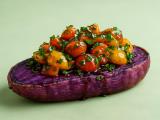The origin of the word "proteins" indicates how important they are. It comes from the Greek word "protos," which means the most important or first. And indeed, proteins are not just food for athletes' muscles, but they literally build every cell in your body.
If there isn't enough of them, it quickly shows: weakened immunity, slowed wound healing, muscle loss, and even concentration problems. Therefore, it's important to understand how much you really need, where to find them, and why it matters whether they come on your plate from meat, fish, or plant sources.
Why the body needs proteins every day
Proteins are like bricks in the construction of a house. Every day, your body uses them for the renewal of muscles, skin, hormones, and enzymes (which are natural accelerators of reactions in the body). If there is a shortage, the body doesn't have "reserves" like it does with fat. Thus, regular protein intake is crucial – not only for athletes but for each one of us.
A study in the American Journal of Clinical Nutrition (2021) showed that an adult who consumes too few proteins starts losing muscle mass within a few weeks, leading to weakness and decreased immunity. On the other hand, adequate protein intake reduces the risk of type 2 diabetes by 34% and enhances recovery after physical exertion.
The average adult needs around 0.8 to 1.2 grams of protein per kilogram of body weight per day. This means that if you weigh 70 kilograms, it's advisable to consume between 60 and 80 grams of protein. Athletes often require even more, up to 2 grams per kilogram.
Animal and plant proteins, which choice is better?
Proteins come from various sources. The most well-known is, of course, meat (chicken, turkey, beef), as well as fish, eggs, and dairy products. These proteins are considered complete as they contain all necessary amino acids. Amino acids are like tiny Lego blocks that the body assembles into proteins.
There are 20 types of amino acids, and among them, 8 are essential, meaning the body cannot produce them on its own. These are threonine, tryptophan, methionine, phenylalanine, leucine, lysine, isoleucine, and valine. If you don't get them from food, the body cannot function properly.
Plant proteins (beans, lentils, peas, nuts, seeds) are rich, but they often lack one or two amino acids. Hence, it's important to combine them: for example, rice with lentils or corn with beans. This is what ancient civilizations used to do. Indians combined lentils and rice, while Mexicans paired beans with tortillas.
Nutritionists now recommend diversity: a mix of plant and animal proteins. A study from the University of Oslo (2020) revealed that individuals who consume a balanced combination of both live an average of 3 years longer than those who stick to exclusively one type.
Best sources of proteins readily available
Although you often hear about protein powders at the gym, nature offers simpler and more cost-effective solutions. Chicken breast contains around 31 grams of protein per 100 grams, an egg has 6 grams, and 100 grams of salmon has approximately 20 grams.
On the plant side, 100 grams of lentils provide around 9 grams of protein, beans between 8 and 10 grams, and almonds a whopping 21 grams. Although the amount may sound less, the difference is that plant proteins often come with fiber, which aids in digestion.
An interesting example from 2025: in Denmark, they began mixing meat and plant protein sources in school meals (replacing half the meat with lentils). The result? Children received the same amount of protein, schools saved 15% on costs, and simultaneously reduced environmental impact.
Proteins and energy throughout the day
One of the biggest misconceptions is that proteins are only necessary for muscles. In reality, they also impact energy levels. If you eat a piece of bread full of refined carbohydrates (meaning quickly digestible sugars), your blood sugar will spike quickly but also drop rapidly – leading to hunger pangs again.
However, if you eat an egg, a handful of nuts, or a piece of meat alongside, your blood sugar rises more slowly and remains stable. This results in fewer hunger attacks and more energy throughout the day. A study in Canada (2022) showed that people who incorporate a protein source with every meal consume 25% fewer unnecessary snacks.
What about proteins in weight loss?
Many people only realize the importance of proteins when they aim to shed pounds. Proteins help you feel full for a longer time as they are digested slowly, meaning you won't get hungry again quickly.
A study in the Journal of Nutrition (2021) demonstrated that individuals who increased their protein intake to 30% of their daily caloric intake lost an average of 5 kilograms in three months without any specific diets.
This is why various diets, such as the Mediterranean diet, emphasize fish, eggs, legumes, and nuts. These are foods that help in weight loss while preserving muscles and energy.
How to incorporate them effortlessly into your daily routine
The biggest issue is not the lack of proteins but our inability to easily include them in our daily lives. According to a Eurostat survey in 2025, the average European consumes 60% more processed carbohydrates (bread, pasta, sweets) than proteins. This means we often have quick energy but lack long-term strength.
The solution is simple: start with small changes. Instead of having just a croissant in the morning, add yogurt or an egg. Swap chips for a handful of nuts. For lunch, try replacing half of the potatoes with peas or lentils. These changes won't burden you, but over time, you will notice more energy, better sleep, and reduced cravings for sweets.
Proteins are the foundation of health that you must not overlook
Proteins aren't just for weightlifters but for every individual who wants to maintain health, strength, and immunity. They are the building blocks of the body, a source of energy, immune system protection, and even aid in weight loss.
By ensuring you get them from various sources daily (meat, fish, dairy products, legumes, and nuts), you will significantly contribute to your health. Whether it's an apple with a spoon of peanut butter, a plate of lentils with chicken, or a simple boiled egg for a snack, these small steps bring about significant results.
Even though we live in times of abundance, it's good to go back to basics. Because it is in these basics, such as proteins, where the greatest power for health and longevity lies.
Datum: 2. SEP 25 - GOOD TO KNOW
Why are proteins the key to health and energy
If you had to choose one nutrient without which the body cannot function normally, it would be proteins. However, be careful in choosing them ...
(FW)
 Would you like to be informed about news on the website?
Would you like to be informed about news on the website?
Just enter your e-mail
Importance of proteins
Protein sources
Health benefits of proteins
Protein intake recommendations
Animal vs plant proteins
|
Copyright (c) Foodwhisper.com March 2018 |
π | Contact: info@foodwhisper.com |
About us | Facebook |  |









